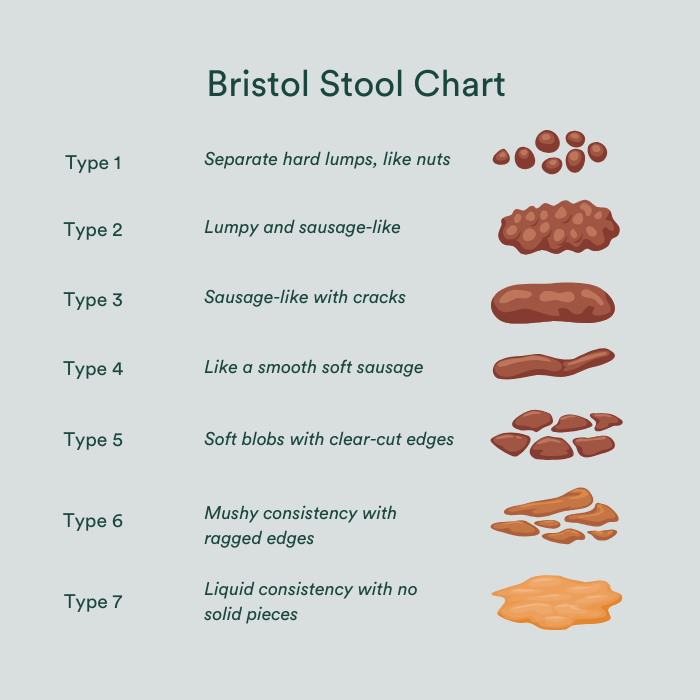
Do you have questions?
Need additional advice? No problem! Ask our team of experts. We'd love to hear from you.

Bloating affects many women. It can range from mild discomfort to severe inconvenience. In our podcast episode 20, Amandine De Paepe and Prof. Dr. Danny De Looze dive deep into the causes and solutions of this common issue.
They discuss how factors like diet, procrastination, and air swallowing contribute to bloating. Additionally, Prof. Dr. De Looze provides scientifically backed insights and practical tips to alleviate these complaints. An essential listening experience for women looking to improve and understand their gut health.

Prof. Dr. Danny De Looze is a gastroenterologist at UZ Gent and was the first to introduce stool transplants in Flanders. He gained national recognition through his appearance on Topdokters (2014) and his bestseller Lactose, gluten en co (2019), which reached over 8,000 readers. As a passionate lecturer at UGent, he shares his expertise with the next generation of doctors. In 2025, you can catch his stage show 'Van mond tot kont' in cultural centers, where all taboos are broken.

According to Prof. Dr. De Looze, many visits to his practice could be avoided if people had more basic knowledge about the gastrointestinal system. Amandine adds that digestion begins in the mouth, thanks to the action of enzymes like amylase. However, the actual digestion primarily takes place much further down, in the small intestine. Nevertheless, what happens between the mouth and the small intestine is also crucial. For instance, what happens in the stomach?

Our stomach can be compared to a dough-kneading machine or a blender, explains Prof. Dr. De Looze. Food in the stomach turns, twists, and moves. It's thoroughly kneaded into a paste with small pieces, ready to continue its journey. Amandine refers to the function of stomach acid and asks why acid reducers are so often prescribed, despite the importance of this acid. Prof. Dr. De Looze explains that stomach acid helps break down food products more effectively, though it doesn't have a purely digestive function in the strict sense of the word. He acknowledges that acid reducers such as proton pump inhibitors can be very useful for people with reflux but regrets that they are prescribed far too quickly in general medical practice.

After the stomach, food enters the small intestine, where it's essentially coated with a sauce of enzymes coming from the pancreas. These enzymes, comparable to tiny scissors, are capable of digesting food. For instance, amylase is responsible for breaking down starches such as bread, potatoes, and rice. The enzyme cuts the starch into glucose, or sugar, which is then absorbed by the cells of our four-meter-long small intestine. Proteins are broken down into amino acids, and fats into fatty acids. To absorb the latter, bile salts from the liver are required.
From the small intestine, we move into the large intestine, where fermentation leads to the dreaded flatulence. This fermentation depends on what we’ve eaten. Anything not digested in the small intestine ends up in the large intestine, where it's fermented by the bacterial flora, also known as the microbiota or microbiome.
The smell of our flatulence is determined by what is being fermented. For instance, the fermentation of carbohydrates, fibers, and whole grains releases CO2, methane, and hydrogen. These are odorless gases, so no one is bothered when they escape.
Things become less pleasant when proteins, such as those found in meat and cheese, are fermented. This process is known as putrefaction. The gases released during this process do have an unpleasant smell due to sulfur and nitrogen compounds. The most well-known gas is hydrogen sulfide or H2S, notorious for its typical "rotten eggs" smell.
Under normal circumstances, proteins are digested without excessive smelly gases being released. However, consuming too many proteins at once can overwhelm the enzymes’ capacity. This often happens during a meal with a large côte à l'os, a cheese platter, or a barbecue with a lot of meat consumed in a short period. Prof. Dr. De Looze suggests spreading protein consumption or keeping it in moderation—at least if you’d rather not smell rotten eggs.
The first cause of bloating is, of course, constipation. When bowel movements are not regular, the abdomen can become bloated. People often assume that after three days without a bowel movement, their bloated belly is filled with stool. In reality, it’s only about 300–500 grams of stool. The sensation is not caused by the mass of stool but by air in the intestines. This gas is produced by bacteria in the stool that has remained in the body longer than it should.
One significant cause of constipation is procrastination. This often starts during school years, where children and teenagers cannot use the restroom calmly and wait until evening to have a bowel movement.

This brings us to a question frequently asked in the Insentials practice: "What is the cause of my bloated feeling?" According to Prof. Dr. De Looze, asking the right questions can quickly provide an idea of the cause.
One primary cause is excessive gas production due to fermentation in the gut. Here we encounter the paradox of fiber. While a healthy diet includes plenty of fiber to nourish the gut microbiome, it's precisely these fibers that are largely responsible for gas production. Fiber is not digested by the small intestine but instead reaches the large intestine, where it's fermented by gut flora. And as we now know, this fermentation is what produces gas.
Eating more fiber is healthy, but for many people, it leads to excessive gas and, consequently, bloating.

It's important to ask further questions to determine which foods are causing problems. For instance, legumes like chickpeas and lentils are known to promote fermentation. Other examples of gas-producing foods include pears, apples, apple juice, whole grains, onions, and garlic.
Many patients see gluten-free diets as a solution and experience fewer symptoms. However, this is often due to eating fewer whole grains rather than the elimination of gluten itself. In such cases, fewer so-called FODMAPs are consumed. FODMAPs stand for Fermentable Oligosaccharides (fructans and galactans), Disaccharides (lactose), Monosaccharides (fructose), and Polyols (sugar alcohols like sorbitol). These FODMAPs, found in the aforementioned foods, are often the culprits behind symptoms in sensitive individuals.
Prof. Dr. De Looze highlights that a significant group of patients with complaints are so-called air swallowers. Aerophagia occurs when people unknowingly swallow too much air. These patients often need to burp frequently. If they don’t, the air has to exit another way; by passing gas through the intestines.
For such patients, the advice includes simple tips such as: avoiding carbonated drinks, not talking while eating, eating slowly and chewing thoroughly, avoiding gum etc.
Finally, there are patients for whom these tips provide no relief. In such cases, Prof. Dr. De Looze and his colleagues often find that these individuals do not have more air in their intestines than others. The issue lies in the air not being held in place. This could be due to the intestinal wall or the abdominal muscles. For example, some patients randomly and suddenly relax their abdominal muscles and push their diaphragm downward through their breathing, resulting in a "bloated belly."
To address this, Prof. Dr. De Looze has been collaborating with a physical therapy practice since last year. They assist these patients with diaphragmatic breathing, which can influence what happens in the intestines.
Amandine inquires about the role of the intestinal wall. Prof. Dr. De Looze explains that people with Irritable Bowel Syndrome (IBS) all have hypersensitivity, meaning they experience abdominal pain more easily than those without the syndrome. Additionally, an inflammatory response in the intestinal wall is often present. This is sometimes referred to as "Leaky Gut."
To help restore the intestinal wall, supplements like glutamine can be beneficial.

Prof. Dr. De Looze emphasized that everything starts with healthy stool. "But what exactly is healthy stool?" Jona asks. In response, Prof. Dr. De Looze refers to the well-known Bristol Stool Chart with seven types of stool, where types 3 and 4 are considered normal. He also discusses the color of stool.

Bestselling author and nutrition scientist Amandine de Paepe, founder of Insentials, received an extensive academic education. She studied biomedical sciences, nutrition, and earned a European Master's in Nutritional Sciences at the universities of Wageningen (NL), Cork (Ireland), Lund (Sweden), and Paris (FR).

Jona, Copywriter and Event Coordinator at Insentials, originally graduated with a Master's in Psychology but always had a strong interest in nutrition. A few years ago, she decided to pursue a Bachelor's in Nutrition and Dietetics. What fascinates her most is the connection between psychology and healthy eating: how do you create healthy habits for the long term?